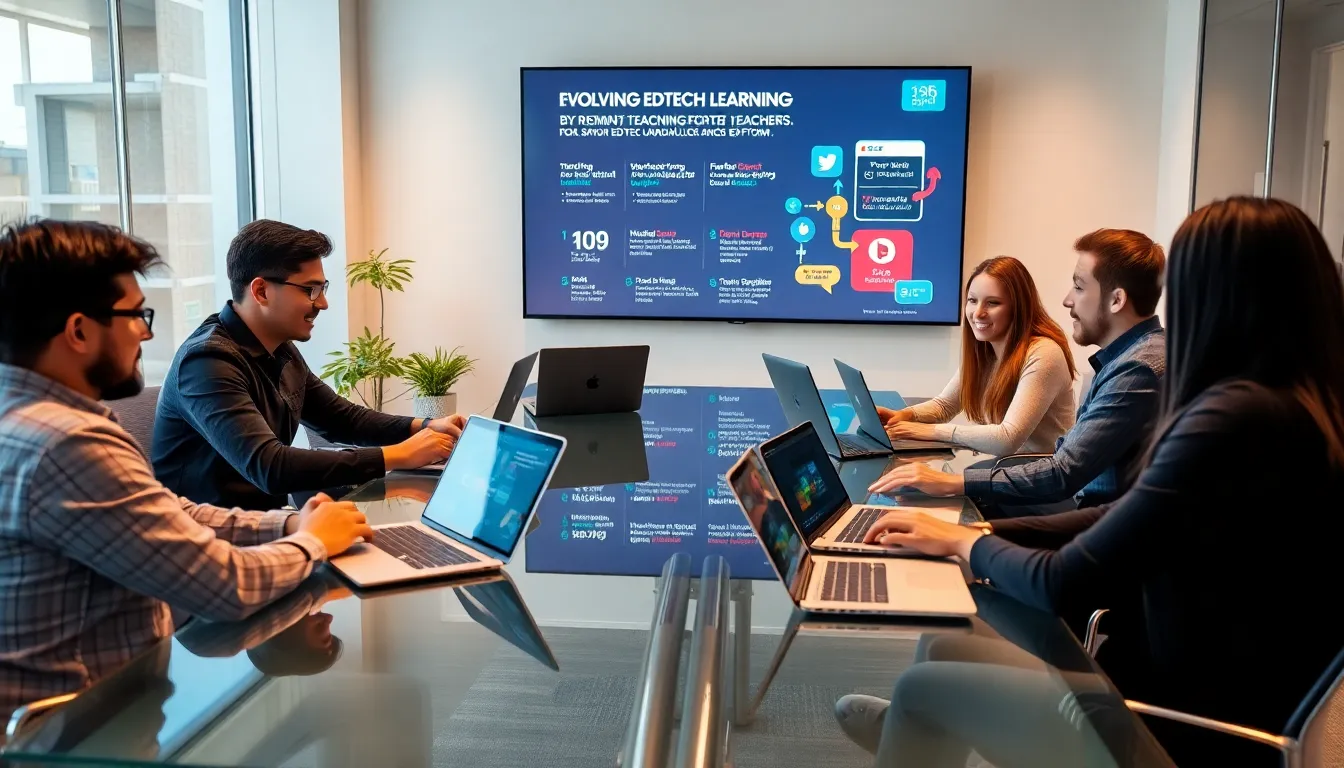Table of Contents
ToggleImagine this: You’ve spent years shaping young minds in the classroom, and now it’s time for a change. What if you could pivot your teaching skills into the booming world of EdTech? This isn’t just a fantasy, former teachers are finding rewarding careers in remote educational technology jobs, transforming education in ways they never imagined. If you think switching from chalkboards to digital platforms sounds like a daunting leap, fear not. In this guide, we’ll explore the vast EdTech landscape, identify transferable skills, outline popular roles, and share savvy tips for making a smooth transition. Buckle up, because your next adventure starts now.
Understanding the EdTech Landscape

The EdTech industry is an ever-evolving frontier. It bridges education and technology in innovative ways, empowering learners and educators alike. With the rapid rise of online learning, tools, and platforms, this sector is flourishing more than ever. Think about how education has changed over the last decade. Traditional classrooms are being replaced by interactive platforms that enable personalized learning experiences. From K-12 education redesign to adult learning initiatives, the landscape offers diverse opportunities for former teachers looking to make an impact.
Also, the pandemic accelerated this transformation, leading to the emergence of numerous startups and established companies alike. They focus on areas such as learning management systems (LMS), online tutoring, educational applications, and more. Recognizing this shift provides a solid foundation for those who want to jump into remote EdTech jobs.
Transferable Skills From Teaching to EdTech
Teachers possess a wealth of skills tailored for the EdTech realm. First and foremost, there’s communication. Educators excel at conveying complex information in understandable terms, a skill that’s invaluable when working on product development or user interface design. Collaboration is another key asset: educators often work alongside colleagues, parents, and students, making them adept at teamwork, which is equally beneficial in a tech environment.
Problem-solving also comes into play. Teachers constantly seek creative solutions to engage students and overcome challenges, which aligns beautifully with roles in EdTech product management or instructional design. Besides, adaptability is ingrained in teachers, as they regularly navigate various learning styles and classroom dynamics. In the fast-paced world of technology, this flexibility is crucial and positions former teachers as prime candidates for success.
Popular Remote EdTech Job Roles
So, what exactly can former teachers expect in terms of job roles in EdTech? Here’s a closer look at some popular positions that leverage teaching experience:
Instructional Designer
Instructional designers create engaging educational content that facilitates effective learning experiences. Their work often involves collaborating with subject matter experts to develop course materials, using their teaching expertise to ensure clarity and engagement.
Learning Experience Designer
Similar to instructional designers, learning experience designers focus on creating enriching digital experiences that cater to diverse learner needs. They often employ user research and data analytics to enhance learning outcomes.
Educational Consultant
For those who enjoy providing guidance, educational consultants advise schools, organizations, or startups on implementing effective teaching strategies and educational technologies. Their insights can directly impact the quality of learning environments.
Product Manager
In this role, former teachers can influence the development of educational products, ensuring they meet the needs of both educators and learners. They bridge the gap between the technical team and end-users, drawing on their classroom experiences for practical insights.
Online Course Developer
With the rise of e-learning, online course developers design comprehensive courses aligned with curricular standards. This role allows former teachers to produce content that demonstrates their subject expertise while engaging learners in a virtual format.
Navigating Job Search Platforms and Networking
Embarking on a job search may feel daunting, but strategic navigation can lead to promising opportunities. Several platforms cater specifically to EdTech positions, such as EdSurge, HigherEdJobs, and LinkedIn. Each platform offers unique job listings, making it easy to pinpoint roles that align with one’s skills and experiences.
Networking within the industry is equally vital. Social media platforms like LinkedIn provide a space for engaging with EdTech professionals and joining relevant groups. Attending webinars, workshops, and virtual conferences can unveil hidden job opportunities and foster valuable connections. Don’t hesitate to reach out to former colleagues or mentors in the EdTech space. Their insights can be instrumental in making informed career decisions.
Tips for Transitioning to EdTech
Successfully transitioning to an EdTech role requires thoughtful preparation. Start by upskilling: explore online courses or certifications that boost your knowledge of educational technology, instructional design, or even coding. Platforms like Coursera, Udacity, and edX offer numerous courses tailored for aspiring EdTech professionals.
Also, consider crafting a tailored resume that highlights your teaching experiences and how they directly relate to the desired position. Demonstrating your passion for education technology in your cover letter can set you apart. Engage in EdTech forums and discussions to remain in touch with industry trends and innovations.
Finally, be open to remote work culture, flexibility is often a part of EdTech jobs. Understanding the nuances of virtual collaborations will help navigate team dynamics effectively.
Future Trends in EdTech Employment
As technology continues to shape education, several trends indicate the future of EdTech employment. For one, personalized learning approaches are gaining traction. This means more roles will focus on developing adaptive learning technologies tailored to individual student needs.
Artificial intelligence will also play a significant role: tools that use AI for assessments and suggestions will become increasingly common. Understanding these technological advancements can open doors for former teachers prepared to embrace the innovative features of EdTech.
Also, as remote work gains permanence, companies are likely to offer flexible arrangements, appealing to those seeking a work-life balance. This trend prioritizes employee well-being while maximizing productivity, an advantage that former teachers can appreciate.







